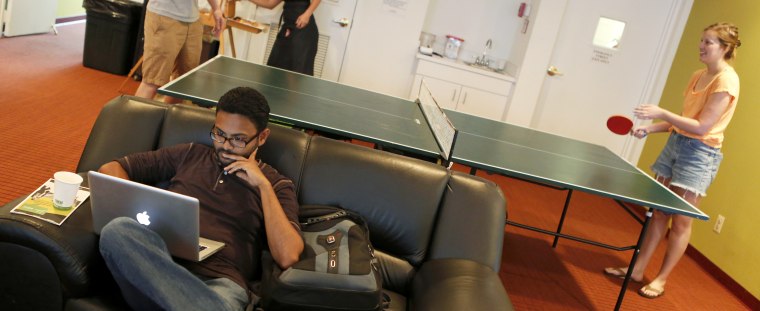Washington, D.C., residents suffering the standstill of a shuttered government survived the 16-day ordeal with a healthy dose of alcohol and comfort food, a social media analysis found.
Foursquare released data on Thursday about location check-ins using their mobile app, focusing on the Washington, D.C., metro area. Its analysis of patterns among social check-ins on the Foursquare app found that during the shutdown, Washington residents were enjoying the first week of the shutdown by drinking more heavily and visiting expensive restaurants--at least during the first week.
More highights from Foursquare's analysis of check-in data reveals:
- During the first week of the shutdown, Washington residents checked in at more bars and Italian restaurants.
- Those bar stops increased by over 50% while patrons and furloughed workers were perhaps celebrating their time off, or drowning their sorrows by visiting more bars.
- But by the second week of the shutdown, people tightened their wallets. Check-ins at expensive restaurants decreased, as did check-ins at coffee shops, restaurants, and food trucks. Check-ins at bars also returned to normal levels, though dive bars became the drinking locale of choice for residents.
- Not surprisingly, travel check-ins were down as less workers were commuting each day during the shutdown -- check-ins at train and subway stations decreased by 25% during the shutdown.
- Government buildings saw less activity. Check-ins at government buildings around the Capitol decreased by 30% during the two weeks of the shutdown.
- Since Washington is full of monuments, museums, and national landmarks that were all closed during the shutdown, there was an immediate decrease in tourism: check-ins at monuments within the district fell over 25% during the first week of the shutdown, and were down over 60% by October 11.
Washington, D.C., Mayor Vincent Gray reported that during the shutdown, the district saw an increase in alcohol sales and a decline in hotel booking and restaurant revenue. Alcohol sales increased 3% in the first two weeks of October, compared to September sales.
Mayor Gray said: "[During the shutdown, we've had] 13,000 fewer hotel bookings and about a $2 million loss in revenue. The one area where we've seen an increase is the alcohol tax has increased in the District in Columbia. I won't try to speculate as to why."
